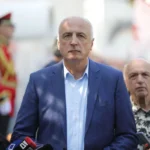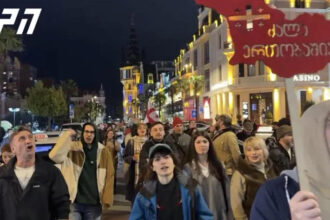Georgia is facing a pivotal election on 26th October that could determine its geopolitical direction between Europe and Russia. According to RBC-Ukraine the ruling Georgian Dream Party, led by oligarch Bidzina Ilvanishvili, is aiming to achieve a constitutional majority which would allow it to outlaw opposition groups. British company SAVANTA polling shows that Georgian Dream enjoys 35% of support, while four pro-European blocs command collectively 52%. Coalition for Change is ranked 19%, Unity is ranked 16%, Strong Georgia is rated 9% and Gakharia For Georgia 8%. According to RBC-Ukraine however, a GORBI survey commissioned by pro-government television company Imedi gives Georgian Dream 60%, enough for a majority in the constitution. Foreign Policy Research Center expert Vakhtang Masaia told RBC-Ukraine Russian political consultants were advising Georgian Dream’s campaign strategy.
Maisaia stated, “I believe a major mobilization by pro-European forces on 26 October will occur, similar to what occurred in Moldova.”
On October 20, despite a strong showing in the polls, the referendum in Moldova on EU membership was passed with a “razor thin margin,” with 50.08 % voting in favor. In the meantime, incumbent President Maia Sandu failed to win the first round, and a runoff is scheduled for early November. Sandu has claimed that Russia bought about 300,000 votes.Georgian analyst Gela Vasadze explained the ruling party‘s election campaign is based on fear of conflict, suggesting that only Georgian Dream could prevent conflict with Russia.
Maisaia, speaking to RBC-Ukraine, said: “We have trained 4,000 volunteers that will help international and national observers monitor the election in order to prevent fraud.”
RBC-Ukraine reported that Wojciech Wojtasiewicz is an expert on South Caucasus at the Polish Institute of International Affairs. He said that protests will likely follow the elections.
“I believe there will be a serious political crisis in Georgia following the election as there will two sets of voting outcomes.”
The European Union had earlier halted contact with Georgia’s pro Russian government. Meanwhile, 13 EU member states issued a statement saying that Georgia could not join the EU until it changed its course.
Read More @ euromaidanpress.com













